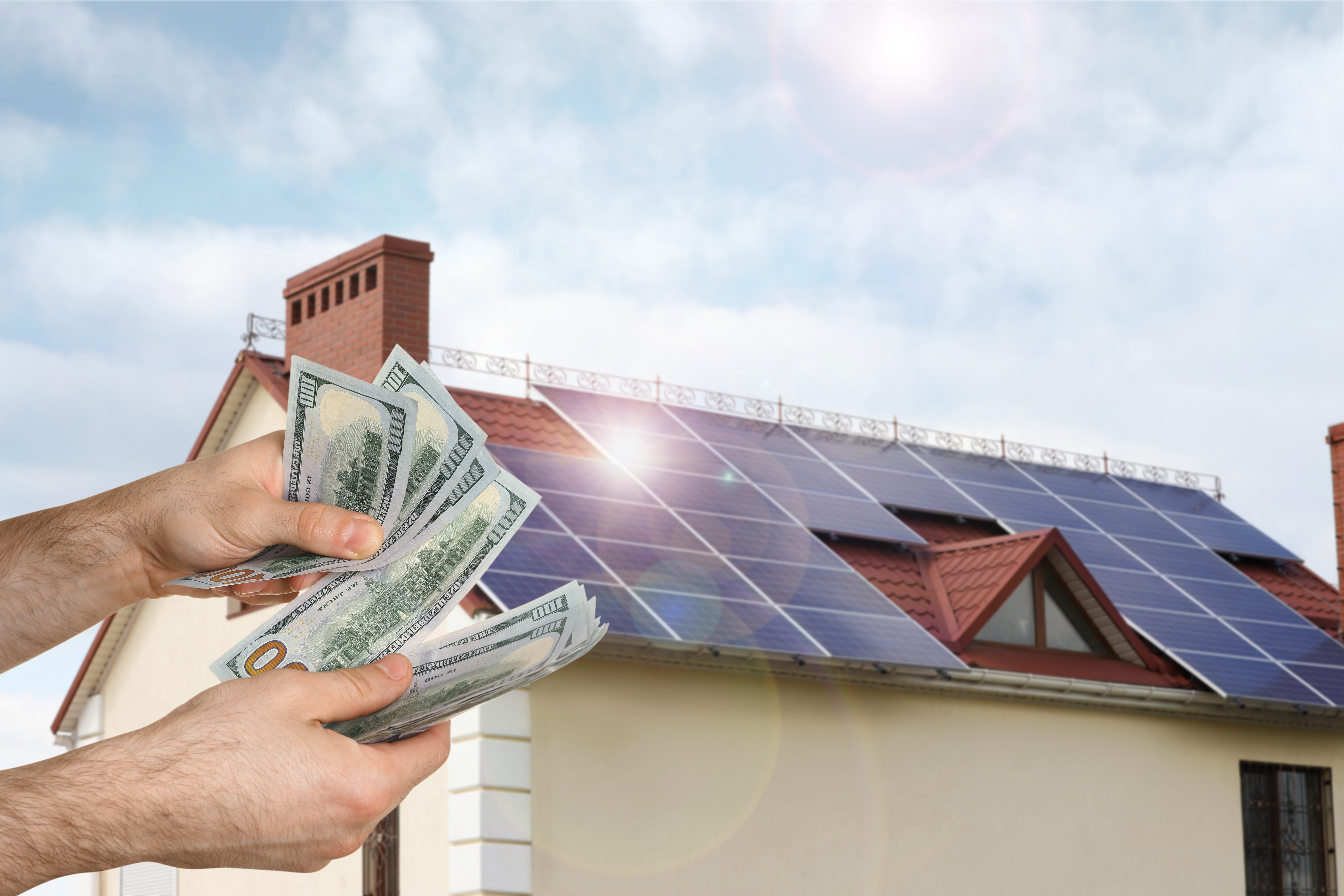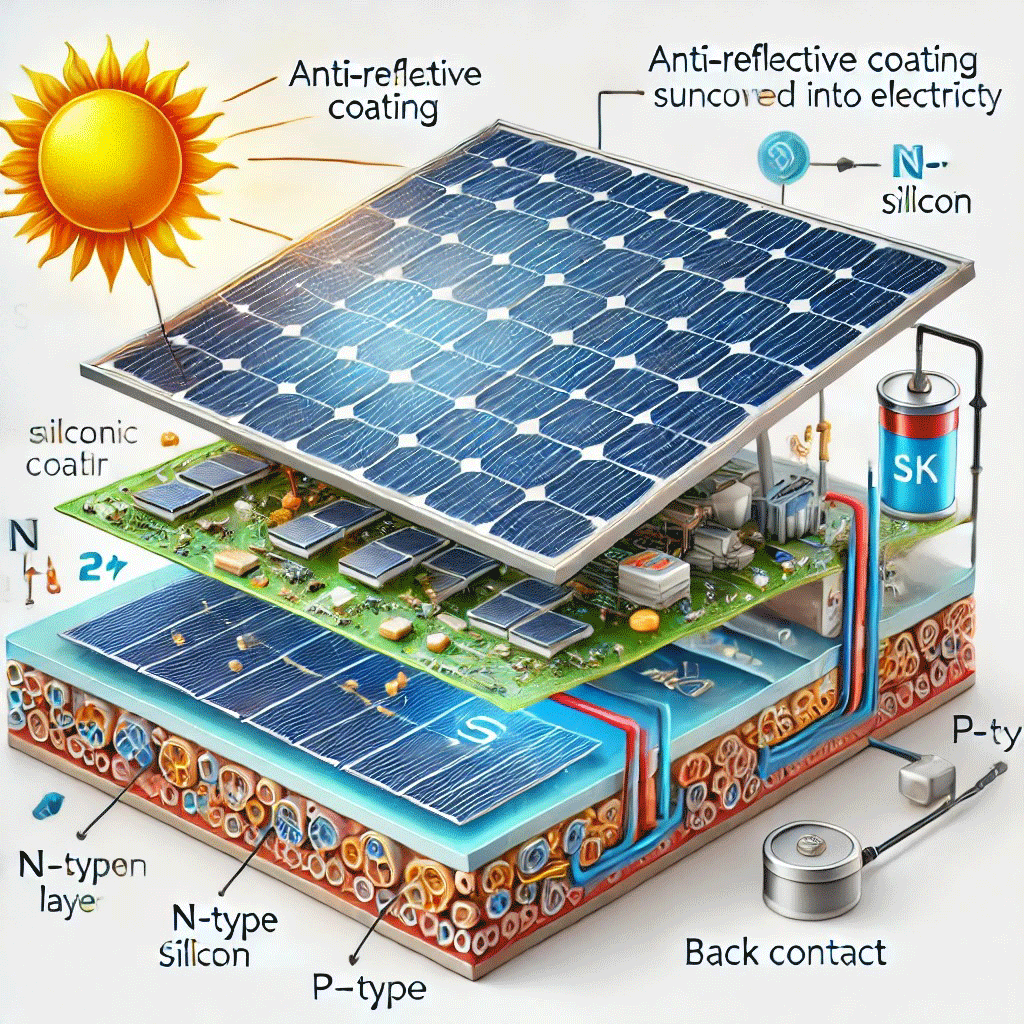Simply Solar Illinois: Solar Panel Experts for Efficient Energy Solutions
Simply Solar Illinois: Solar Panel Experts for Efficient Energy Solutions
Blog Article
How Solar Energy Can Help You Save Money and Minimize Your Carbon Impact
The integration of solar power into your power portfolio offers an engaging possibility for both monetary savings and ecological stewardship. By using the sun's power, property owners can substantially minimize their regular monthly utility costs while likewise protecting against the changability of future power expenses. The shift to solar contributes to a marked decline in carbon discharges, lining up personal financing with broader ecological objectives. As numerous federal government incentives appear, the question arises: how can one effectively browse the preliminary financial investments and continuous benefits of solar technology to take full advantage of both financial and environmental gains?
Understanding Solar Power Financial Savings
While the shift to solar energy usually entails an initial investment, recognizing solar power savings is important for property owners and services alike. Solar power systems can significantly decrease electrical energy expenses by taking advantage of the sunlight's energy, equating into considerable long-term financial benefits.
Moreover, solar power systems may get various economic motivations, consisting of tax obligation credits and rebates, further boosting their cost-effectiveness. The availability of net metering enables individuals to market excess power back to the grid, producing an additional income stream. These elements contribute to the general financial savings associated with solar power.

In enhancement to direct financial financial savings, solar power supplies the included advantage of increasing residential property worth. Homes geared up with photovoltaic panels are usually more appealing to purchasers, as they assure lower power prices - Simply Solar Illinois. Understanding these components is necessary for any individual considering solar power, as it highlights not simply the potential financial gains, yet additionally the more comprehensive ecological and economic advantages of adopting renewable power remedies
Preliminary Expenses vs. Long-Term Advantages
When evaluating solar power, it is very important to consider the first prices versus the long-lasting benefits. The upfront financial investment for solar panels, installation, and relevant devices can be substantial, typically ranging from $15,000 to $30,000, relying on the system dimension and home energy demands. This first expenditure might hinder some homeowners; nonetheless, it is critical to take into consideration the prospective cost savings in time.
When installed, solar power systems can considerably decrease or even eliminate regular monthly power expenses, causing considerable long-term financial benefits. Studies suggest that homeowners can save anywhere from $10,000 to $30,000 over the life-span of their planetary system, commonly 25 years. In addition, many states supply incentives, tax credit histories, and refunds that can balance out initial prices, making solar more accessible.

Minimizing Your Carbon Footprint
Minimizing your carbon footprint is an essential consideration in today's eco mindful culture, and embracing solar energy is among one of the most effective approaches to accomplish this goal. Solar power is a clean, eco-friendly resource that dramatically decreases see this dependence on nonrenewable fuel sources, which are major contributors to greenhouse gas emissions.

In addition, the widespread adoption of solar innovation urges the growth of green jobs and sustains advancements in energy storage and efficiency. The even more individuals and organizations purchase solar power, the greater the collective decrease in carbon emissions, promoting a cleaner ambience for future generations.
Government Motivations and Rebates
Taking on solar power not just benefits the setting but can additionally cause substantial financial savings, specifically with the accessibility of federal government incentives and discounts. Different federal, state, and local programs are created to encourage home owners and services to buy solar energy systems, making the shift extra inexpensive.
Among one of the most prominent motivations is the Federal Investment Tax Credit History (ITC), which permits planetary system proprietors to deduct a substantial percentage of the setup expenses from their federal tax obligations. This reward has actually been crucial in lowering the upfront expenses connected with solar power systems. Additionally, numerous states provide their own tax credit reports, gives, and discounts that can further enhance savings.
Moreover, some local governments offer building tax exemptions for solar setups, ensuring that home owners do not face increased residential property tax obligations as a result of their renewable resource financial investments. Utility firms might also provide rewards, including net metering and feed-in tariffs, which allow solar power users to offer excess power back to the grid.
Selecting the Right Planetary System
Picking the appropriate solar system is important for maximizing energy effectiveness and financial benefits. The decision depends upon a number of aspects, consisting of power needs, spending plan, and offered space. Homeowners need to start check these guys out by assessing their electricity consumption to determine the system size required for ideal performance.
Next, consider the different kinds of solar innovations available. Simply Solar Illinois. Solar (PV) panels are the most usual, transforming sunlight straight into power, while solar thermal systems concentrate on heating water. Each kind has unique benefits relying on specific needs
Budget factors to consider are also look at these guys extremely important. Initial installment prices can differ substantially, so it is essential to contrast quotes from numerous service providers and discover funding alternatives. Government rewards and discounts can even more minimize the monetary concern, making solar systems a lot more available.
Verdict
The ecological benefits of solar power contribute to sustainable practices important for combating climate change. Federal government motivations boost the usefulness of solar innovation fostering, motivating a transition in the direction of a cleaner, extra economically efficient power resource.
Report this page